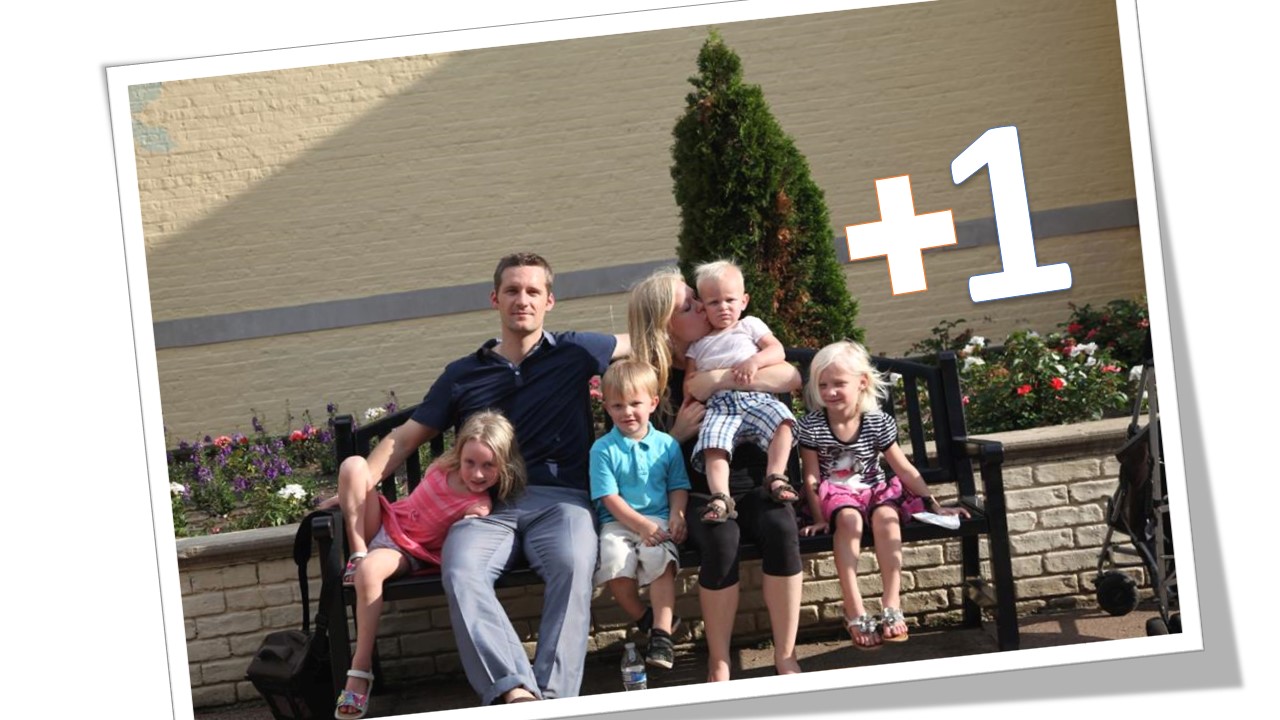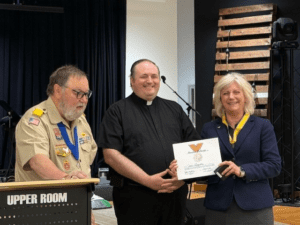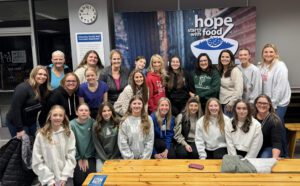From Yugoslavian Refugee to All American
By Hrvoje Crnecki
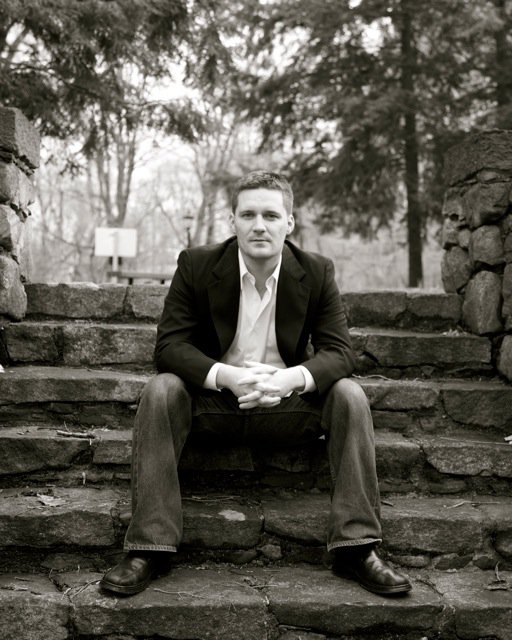
I was born in Vinkovci, Yugoslavia, a small town on the far eastern side of what is now known as Croatia. As a child, I spent most of my days playing outside; when I watched TV it was usually a cowboy western. I loved John Wayne in particular—his demeanor, his confidence, his valor. He was my idol, and I would often mimic the way he walked and the way he talked, albeit I did not speak a lick of English. When I traded toy cars with my friends, I took special interest in the ones ‘Made in the U.S.A.’ and would frequently tell them that I would live there one day, a statement at which many of them smirked.
As chance would have it, in 1991 Yugoslavia erupted into civil war, and under a miraculous set of circumstances, my mother, brother, and I escaped [. . .] when our small town was viciously attacked by the opposing forces. (We had family on both sides of the battlefield, which made it that much more difficult.) In an effort to escape the war, my mother had miraculously received a temporary visa to the United States, but we still needed money for plane tickets, and for this reason, we had put our apartment up for rent. Needless to say, during wartime, real-estate takes a real downturn; however, to our surprise, a young couple had expressed genuine interest in our apartment.
On the day when they were supposed to come by to pay the deposit, we were being bombed extremely heavily. We, along with all of the other residents of the building, took refuge in the basement. People were crying and frightened, and we all wondered if the next bomb would hit us. My mother impatiently glanced at her watch, hoping the bombing would end, but it only intensified. A few minutes prior to the appointment, my mother stood up, took my hand, and walked out of the basement as the other residents questioned her sanity. After we made it to our apartment—we could now not only hear but also see the bombing lighting up the night sky—my mother, whose faith has always been central in her life, asked me if I would say a prayer. Because of my mother’s example and teachings, at a young age I developed a close relationship with God. Even so, at that time, my usual response would be a resounding “no”, but recognizing the solemnity of the moment, I began praying. Suddenly, in the middle of my prayer, we heard a loud knock on the door; it was the prospective tenants, who handed us the deposit. This is only one of many similar miracles, which I have experienced throughout my life.
We arrived in America with only a few Yugoslavian coins in our pockets—the exchange rate would have been equivalent to a US nickel, and that’s no exaggeration! Oh, how I wish we could have received a cost of living allowance or some sort of a relocation package. Unfortunately, this was no corporate relocation! There were no destination services, language or cultural training.
I went from being a very outgoing and popular kid to being silent and observant. My English was limited to “Hi, my name is…” and “Me no peek English”. Even though I did not understand the kids around me, I could tell by their expressions that they were making fun of me—but I was not having it! (Didn’t they know I was John Wayne?) The only language I understood was math, and though I stunk at math in Yugoslavia, I was considered ahead in comparison to my American peers. I was placed in a corner in one class and given “Where’s Waldo?” books. “Who the heck is Waldo?” I wondered. I soon grasped the concept but was more fascinated by the other characters. I witnessed my fellow students jumping on top of their desks and chairs while waving their arms up and down and making sounds like the “Indians” depicted in the cowboy westerns. (I eventually learned that they were celebrating the Atlanta Braves victory.) I was given a book to place over my head when the American bombing sirens went off but was even more frightened when the teacher explained to me through pictures that we were not being bombed but that we were about to be destroyed by a giant tornado (“Tornado Drill.”)
It did not help that I was given arguably the hardest name to pronounce by anyone not Yugoslavian. Introductions and first days in school were always amusing! The teachers even got the Asian kids’ names partially correct, but when they came across my name: Hrvoje Crnecki—Yes, that is my name and no, I do NOT need to buy a vowel—they often said, “I’m not even going to try to pronounce this one!” (A common reaction to this day.) I have been called everything under the sun. When I played pop warner football, I was even given the nickname Mikey (“He looks like a Mikey,” they argued)—-a name that has followed me to this day. “All these years I’ve been trying to find you on Facebook,” many of my childhood friends have informed me. “But I was looking for Mikey.”
I was labeled as “gringo” and “white boy” by my neighbors and a “foreigner” by the remainder. “He’s from Russia or somewhere,” they’d often say. The famous “I must break you” line from Rocky IV was often quoted to me as if I was the “Russian” himself.
The irony is that it was America that was breaking me in. My family and I did not receive any assistance or help from the government but were instead helped by extremely kind people within the communities in which we lived, until we started off on “our own” living in shelters like The Salvation Army and Amos House. As for us all, life was full of challenges, but to me, mine seemed insurmountable, and I found myself buried in self-pity.
My mother, though a Registered Nurse by profession, took odd jobs (cleaning houses, babysitting, dog sitting, etc.) to provide a shelter over our heads and place food on the table. My brother always had a job and held straight A’s throughout school but missed out on an academic scholarship because we were not permanent residents. He instead decided to finance his own college by working full time at a grocery store while also going to school full time. It was because of my mother’s and brother’s efforts and examples that we were able to progress and that I eventually climbed out of my pity hole and joined them on this expedition.
We have come a long way since arriving in America, and we continue to progress. Despite the many struggles, America has been a place of refuge and refining, and I have come to embrace this country as my own. Like many of the immigrants that have come before me, I have an undeniable hunger and drive to achieve the American Dream, but I have come to realize that it’s a journey rather than a destination.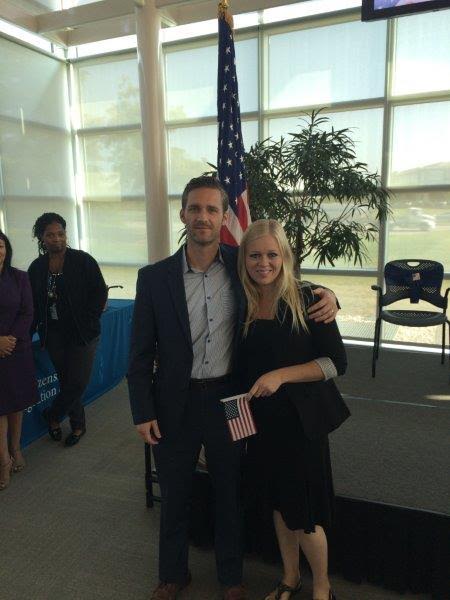
Anyone that has known my family or me over the past two decades has likely been at least partially aware of the immigration challenges and struggles that we have faced, which became even more complex when I married my beautiful wife from Denmark. Interestingly, working in the Global Mobility (Corporate Relocation, for those not familiar with the term) industry has granted me the opportunity to assist many expats with their immigration needs while simultaneously handling my own. While it took me 23 years and my wife “only” 11 years to obtain US citizenship, the challenges, the stress, and the wait have made us that much more appreciative and grateful of this great honor.
[My faith] has definitely given me a broader and a more rounded perspective and has allowed me to empathize with those who are truly seeking refuge, opportunity, and freedom. But I also sympathize and to a great degree empathize with America citizens who often rightly oppose large flows of legal and illegal immigration—particularly individuals and families who do not wish to assimilate or embrace the liberties and freedoms upon which this country was founded. In short, it is extremely important for us to hold on to our roots, but we must also respect the soil.
When my mother informed her family and friends that she would be leaving Yugoslavia for America, they mocked her and laughed at her, but she pressed forward anyway. When she questioned her own sanity for bringing her sons into the ‘promised land’ only to find herself in a shelter, she pressed forward anyway. I have come to recognize that the struggles and the challenges are a vital part of the American Dream. John Wayne, The “Duke”, summed it up best when he said, “Courage is being scared to death—and saddling up anyway.”
I am grateful to my mother for teaching me to saddle up and to America for shaping me into who I am today.
Hrvoje Crnecki is the author of Life’s a Beach, a full account of his experience as a refugee. He came to the United States in 1991 and received U.S. citizenship in 2012. Crnecki, who has been a member of The Church of Jesus Christ of Latter-day Saints for eighteen years, makes his home in North Texas with his wife and five children.

